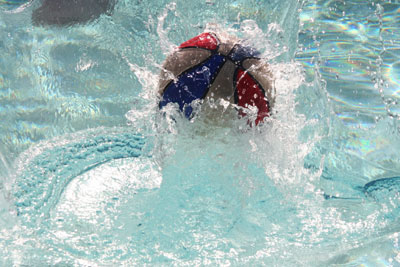All Nonfiction
- Bullying
- Books
- Academic
- Author Interviews
- Celebrity interviews
- College Articles
- College Essays
- Educator of the Year
- Heroes
- Interviews
- Memoir
- Personal Experience
- Sports
- Travel & Culture
All Opinions
- Bullying
- Current Events / Politics
- Discrimination
- Drugs / Alcohol / Smoking
- Entertainment / Celebrities
- Environment
- Love / Relationships
- Movies / Music / TV
- Pop Culture / Trends
- School / College
- Social Issues / Civics
- Spirituality / Religion
- Sports / Hobbies
All Hot Topics
- Bullying
- Community Service
- Environment
- Health
- Letters to the Editor
- Pride & Prejudice
- What Matters
- Back
Summer Guide
- Program Links
- Program Reviews
- Back
College Guide
- College Links
- College Reviews
- College Essays
- College Articles
- Back
Unfair Acceptance into College
“If grades make you a long shot for college, you’re pretty much more likely to get a break if you can play ball” (Scherzagier). In today's society athletes have a much better chance of getting admitted into a school if they choose to consistently continue their athletic career through college. They benefit from special opportunities that they would not have received if it were not for their athletic talent. Colleges and universities should not accept student athletes into their school solely based on their athletic abilities.
An unfair advantage creates itself when an athlete gets accepted into a university only due to his or her athletic ability. Sportsmen convenience from special privileges in which they do not have to fit the normal criteria that most students would need to receive admittance. The Associated Press, a large newsgathering organization, released a review of admissions data. This review “identified at least 27 schools where athletes were at least 10 times more likely to benefit from special admission programs than students in the general population” (Scherzagier). Athletes receive different and better privileges in the admissions process that the average person does not get. Secondly, the student athletes are much more likely to receive special admissions even though their test scores and GPAs are below average. A survey was taken from 274 Division 1 schools, and the data taken confirms that “athletes do benefit from special admissions procedures more often than other students and that their high school grades and test scores rank below average” (Thomas). Some students who perform superior to these athletes who will not get accepted because their scores are not high enough, but the athletes with even lower scores will receive special admittance. It can create an unfair situation for these students, because they are going to school for academic reasons and sustained stronger grades than the sportsmen. Lastly, athlete’s high school academic scores are waived in order for these student athletes to get special admissions. The Associated Press spent months reviewing information through public records, and “In all, 77 of the 92 Football Bowl Subdivision schools that provided information to the AP reported using special admissions waivers to land athletes and other students with particular talents” (Scherzagier). Almost 85% of the schools who responded stated that they took part in waiving athletes’ antecedent academics, and the players were given an exclusive admissions process, making it much easier to obtain acceptance into a school (Scherzagier). Evidence shows us that most of the time athletes are given much leeway on their scores and grades compared to other students. This gives some students who are not as athletically competent a very unfair disadvantage.
Despite some of the unfairness shown towards regular academic students in the admissions process, some argue that these athletes are benefiting the school in a different area. Some high level officers at large universities state that, although, some students may not meet the academic requirements, they are enriching the athletic programs at the school. Although it is important to be competitive athletically at these Division IA schools, the most important part of going to college is receiving an education. School should always come before athletics, and that is the policy upheld in high schools across the nation. A report from the United States Sports Academy shows that a lot of high schools require “minimum grade points for athletic participation in interscholastic sports ranged from no minimum grade point to 2.5. Some of the schools didn’t include a grade point but demanded a percentage grade to be met in all classes (70% or 60%)” (Bukowski). If this is true for high school athletes, shouldn’t colleges be holding sportsmen to similar standards in the admissions process?
Unfortunately, many athletes today have a considerably large advantage in the admissions process. Universities accept students based on their athletic ability, and the athletes are provided with an out of the ordinary admissions process. Because everyone wants students to have deserving academic opportunities, athletes should not receive completely better treatment in the acceptance process. Colleges and universities should raise the standards they have for accepting athletes so that it produces an equal or almost equal opportunity for the kids going to pursue academic interests. No one who works hard in high school academically would want to get denied acceptance to a university because an athlete, with lower grades and scores, acquired special admissions, would they? Steps need to be taken in order for students to get equivalent or almost equivalent opportunities as the athletes receive so that universities are able to set a better focus on the real reason students attend college--to learn and receive a degree, not to score touchdowns.

Similar Articles
JOIN THE DISCUSSION
This article has 0 comments.
